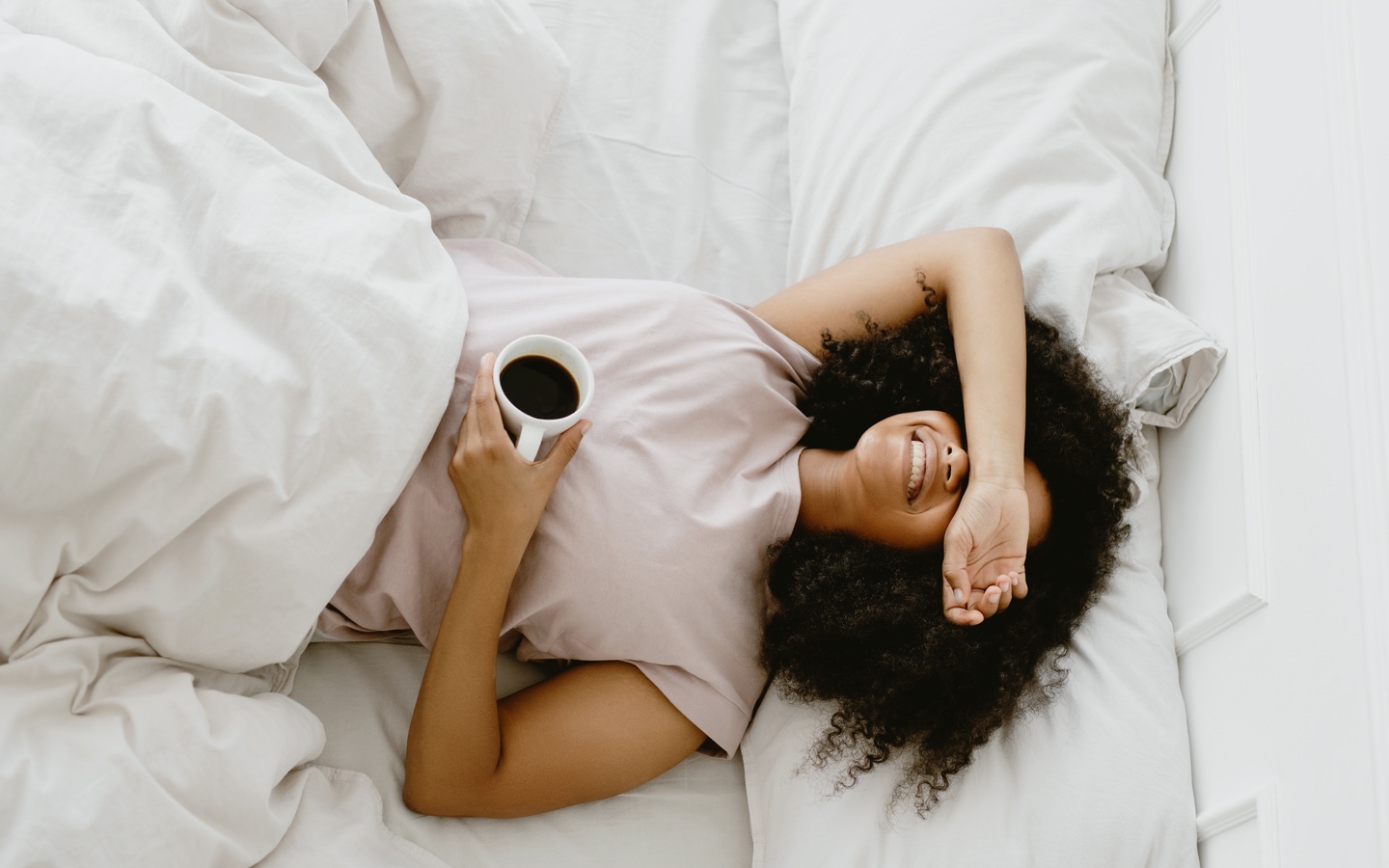Lack of sleep doesn’t just impact energy levels and productivity — it has a major effect on your overall well-being, too. So, we spoke to an expert to gain insight into how sleep affects metabolic health.
Fatigue, trouble concentrating, a constant need for caffeinated drinks — this is probably what most people associate with sleep loss. And while those are no doubt signs that we need more rest, the effects actually go beyond what’s easy to observe. Not getting enough sleep has far deeper consequences, especially if it’s an ongoing issue, says Dr. Yishan Xu, a licensed clinical psychologist and certified behavioral sleep medicine specialist.
The Connection Between Sleep & Metabolic Health
Sleep loss harms our entire system in ways that aren’t immediately noticeable. In addition to low energy levels, studies show that a lack of sleep makes it harder for our bodies to regulate our metabolism, which is key to overall good health. Two key indicators that help us gauge our metabolic health are glucose and insulin levels, since chronically high numbers are linked to diabetes.
Considering only 12 percent of Americans meet the standards for metabolic health, understanding how it’s connected to sleep is essential. Much like our energy levels, our metabolism fluctuates throughout the day, typically reaching its peak in the afternoon and evening. “Nighttime, when we sleep, our metabolic rate is actually lower and it’s a chance for our bodies and our cells to recover and heal,” explains Xu. “There’s some research showing that if we’re not sleeping enough, it may cause glucose dysregulation in our body.”
Sleep deprivation can also impact our appetites and lead us to make unhealthy food choices that further affect our metabolism. “If we don’t sleep enough, we may actually crave carbohydrates, like sweet, salty, starchy foods. Levels of leptin, an appetite suppressant, drop and that makes us feel hungrier and we end up gaining weight,” says Xu. “There’s a lot of damage functionally in how our bodies digest and on our metabolic health.”

Read more: How Food and Alcohol Affect Sleep
Expert Tips For Better Sleep
With potential serious health consequences, sleep should be as much of a priority as a varied diet and regular exercise. But getting a full night’s rest can prove difficult for many.
Those who get enough sleep are actually in the minority, according to Xu. “I just saw some data that about 30 percent of adults sleep less than six hours per night. We sometimes create this false sense of urgency for ourselves so we always think sleep can wait and we really have a lot of sleep deprivation going on.”
So how exactly does one stop doom scrolling and get more shut-eye? Contrary to common belief, the best way to start is by setting a consistent wake-up time. Xu, who studies and treats insomnia, says that’s a far more realistic goal than adhering to a strict bedtime.
“It’s very hard for people to sleep at a certain time. It’s hard to shut down our brains. If you can’t guarantee when you go to bed every day, then at least anchor your wake-up time because your circadian rhythm can reset every morning when you wake up,” she says. “If you can do that day after day, you’ll feel a certain type of tiredness at night and your sleep drive will readjust.”

Read more: 4 Ways to Feng Shui Your Bedroom For Better Sleep
Once you’ve established a steady wake-up time, the other important daytime tweak is getting more sunlight — and not just through a window as you’re working.
“In the morning, we always recommend people to get 15 minutes of outside sunlight,” says Xu. “It can help us generate energy during the day and help us sleep better at night. A lot of the time, people don’t realize how important the morning is. We always think sleep is a nighttime thing, but sleep starts from daytime.”
While it’s not possible to make up for lost sleep, prioritizing sleep on a consistent basis will have overall positive effects on our long-term health. It’s possible you may even start to feel less sluggish after one night of solid sleep, but, says Xu, “even if you don’t, if you’re sleeping better, some positive change is happening inside of you. It’s a cumulative effect.”
Read more: The Therapeutic Pillow Spray Your Sleep Routine is Missing
Have feedback on our story? Email us at [email protected] to let us know what you think.

Shop Pillows
The Essential Organic Pillow Collection
Gentle, breathable, non-toxic support.





